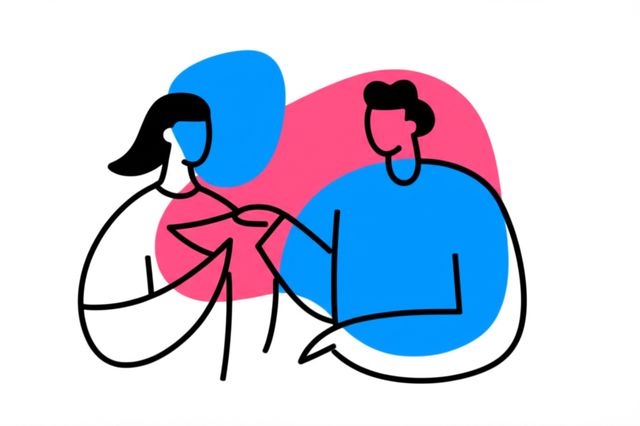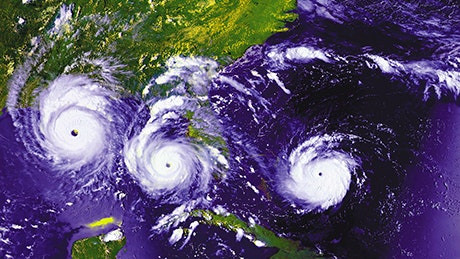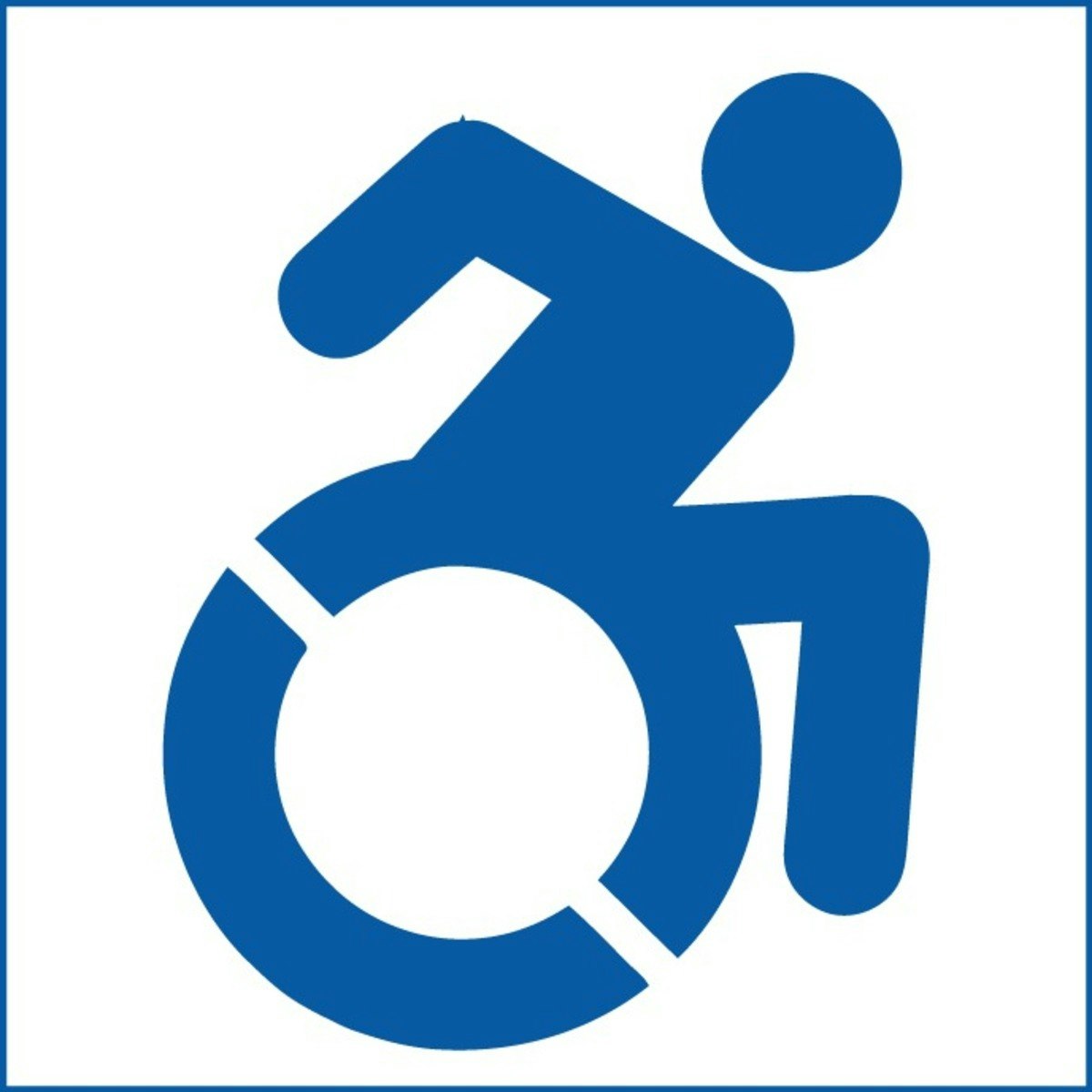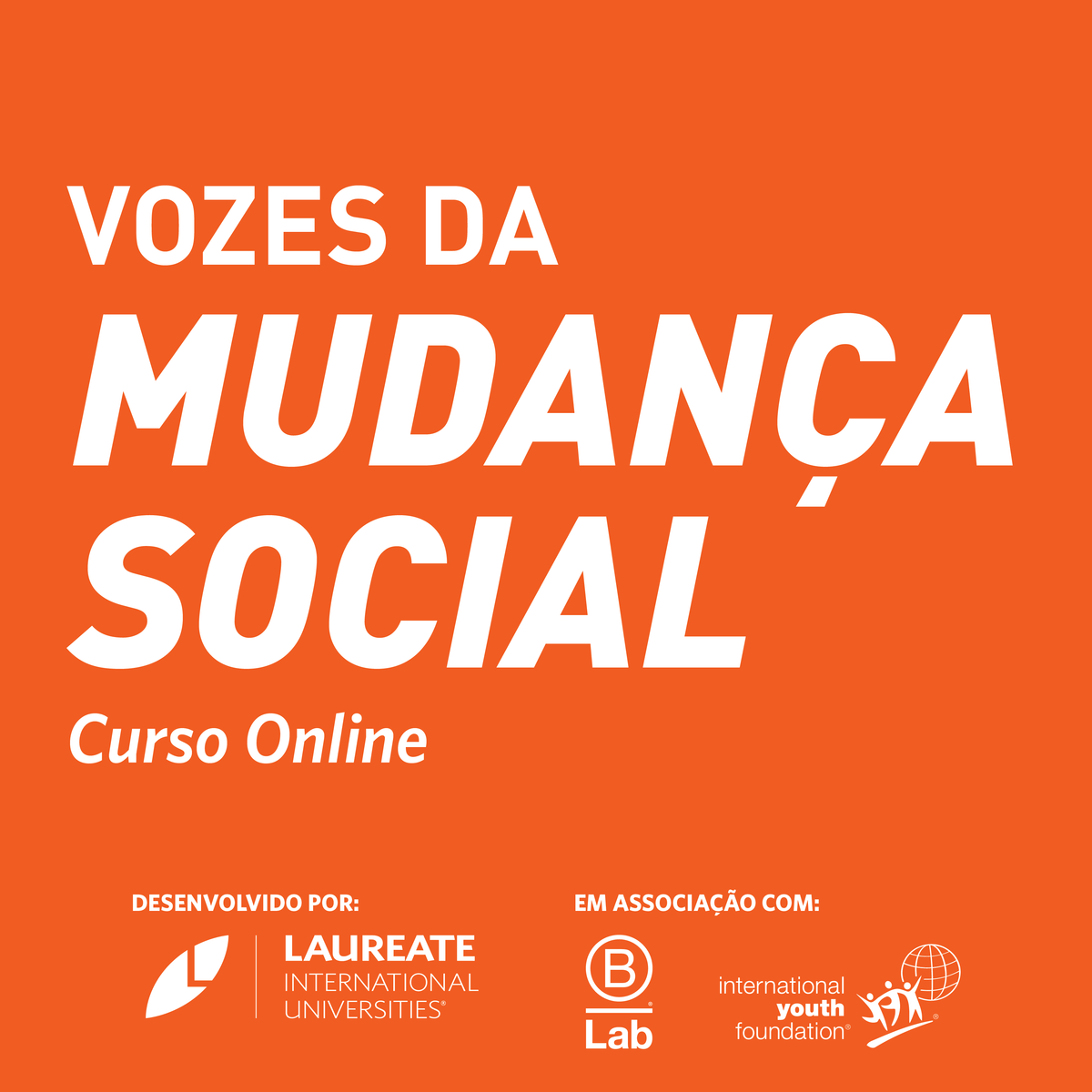Community Outreach Specialist
vigating the World of Community Outreach: A Comprehensive Career Guide
A Community Outreach Specialist serves as a vital link between organizations and the communities they aim to serve or engage. This role involves fostering relationships, disseminating information, and facilitating programs designed to address specific community needs or promote an organization's mission. Professionals in this field work to build trust and create a dialogue, ensuring that community voices are heard and that initiatives are culturally sensitive and impactful. It's a career that often attracts individuals passionate about making a tangible difference in people's lives and strengthening community bonds.
Working as a Community Outreach Specialist can be deeply rewarding. One exciting aspect is the opportunity to connect with diverse groups of people and understand their unique perspectives and challenges. Furthermore, the role often involves creative problem-solving and the development of innovative programs that directly benefit community members. Seeing these efforts translate into positive change, whether it's increased access to resources, improved public health, or greater civic participation, provides a profound sense of purpose.
Introduction to Community Outreach Specialist
A Community Outreach Specialist is a professional dedicated to connecting an organization with the public. Their core purpose is to build and maintain positive relationships with community members, stakeholders, and other relevant groups. This involves understanding community needs, communicating organizational goals and services, and facilitating programs that benefit both the organization and the community. Think of them as the bridge-builders, ensuring smooth and effective interaction. These specialists are crucial for organizations looking to make a real-world impact and maintain a positive public image.
The role requires a dynamic skill set, blending interpersonal abilities with strategic thinking. It's about more than just talking to people; it's about listening, understanding, and responding effectively. For those considering this path, it's a career that promises variety and the chance to contribute meaningfully to societal well-being.
What is a Community Outreach Specialist?
At its heart, a Community Outreach Specialist works to establish and nurture an organization's presence and relationships within a specific community or among a particular demographic. This can involve a wide array of activities, from organizing informational events and workshops to representing the organization at community gatherings and forums. They are the face and voice of their organization on the ground, working to ensure that its mission and services are understood and accessible. This professional is often responsible for identifying community needs and concerns, and then channeling that information back to their organization to help shape more effective programs and strategies.
Essentially, they act as liaisons, ensuring that communication flows effectively in both directions. This two-way communication is vital for building trust and ensuring that outreach efforts are genuinely responsive to the community's realities. They might conduct surveys, facilitate focus groups, or simply engage in informal conversations to gather insights and build rapport.
The ultimate aim is to foster a cooperative environment where the organization and the community can work together towards common goals. This could mean increasing participation in a health program, promoting educational opportunities, or encouraging involvement in civic initiatives. The work is deeply people-centric and requires a genuine commitment to understanding and serving others.
Where Do Community Outreach Specialists Work?
Community Outreach Specialists find employment across a diverse range of industries and sectors. Non-profit organizations are major employers, as outreach is central to their mission of addressing social issues and serving specific populations. Government agencies at the local, state, and federal levels also rely on outreach specialists to connect with citizens, disseminate information about public services, and encourage civic engagement. Healthcare organizations, including hospitals and public health departments, hire outreach specialists to promote health education, preventative care, and access to medical services, particularly in underserved communities.
Educational institutions, from K-12 schools to universities, employ outreach specialists to engage with prospective students, families, and the wider community. They might work on recruitment, alumni relations, or community partnership programs. Additionally, some private sector companies, especially those with a strong focus on corporate social responsibility or those needing to engage with local communities for development projects, will also have roles for outreach professionals. The common thread is the need to build bridges and facilitate communication between an organization and its external stakeholders.
The versatility of this role means that specialists can often find opportunities that align with their specific interests, whether that's environmental advocacy, youth development, arts and culture, or social justice. This adaptability makes it an appealing career choice for individuals with diverse passions.
Why is This Role Important Today?
In an increasingly complex and interconnected world, the role of a Community Outreach Specialist is more relevant than ever. These professionals play a crucial part in ensuring that diverse voices are heard and that community needs are addressed effectively. They help bridge gaps between institutions and the public, fostering understanding and collaboration. In an era where misinformation can spread rapidly, outreach specialists provide reliable information and build trust, which is essential for collective action and social cohesion.
The societal impact of this role is significant. By connecting people with resources, services, and opportunities, outreach specialists contribute to improved health outcomes, better educational attainment, increased civic participation, and stronger, more resilient communities. They are often at the forefront of addressing social inequalities and advocating for marginalized groups. Their work helps to ensure that programs and policies are not just well-intentioned but also practically effective and culturally appropriate.
Furthermore, as organizations recognize the importance of community engagement for their own success and sustainability, the demand for skilled outreach professionals continues to grow. Whether it's a non-profit seeking to maximize its impact or a government agency aiming to serve its citizens more effectively, the ability to connect authentically with communities is a critical asset.
Key Responsibilities of a Community Outreach Specialist
The day-to-day work of a Community Outreach Specialist is multifaceted and dynamic. It requires a blend of strategic planning, interpersonal skills, and meticulous execution. These professionals are responsible for designing and implementing outreach strategies that effectively connect their organization with its target communities. This involves a deep understanding of both the organization's goals and the community's needs and characteristics.
A significant portion of their time is dedicated to building and maintaining relationships with various stakeholders. This includes community leaders, local organizations, residents, and sometimes media representatives. Effective communication, both written and verbal, is paramount in this aspect of the job. They must be adept at conveying information clearly, listening actively, and fostering a sense of partnership.
Engaging with Community Members and Leaders
A core responsibility is to actively engage with community members and leaders. This involves identifying key individuals and groups within the community and establishing rapport with them. Outreach specialists often attend community meetings, organize town halls, and participate in local events to make connections and gather information. They act as a visible and approachable representative of their organization.
Effective stakeholder engagement also requires understanding the diverse perspectives within a community. Specialists must be skilled at navigating different viewpoints and facilitating constructive dialogue. Building trust is essential, and this often involves demonstrating a genuine commitment to the community's well-being and being transparent in all interactions. This might mean addressing concerns directly, acknowledging challenges, and working collaboratively to find solutions.
To effectively engage with diverse communities, cultural competency is crucial. These courses can help build a strong foundation in understanding and respecting different cultural backgrounds, which is vital for building trust and effective communication.
Designing and Executing Outreach Programs
Community Outreach Specialists are often tasked with developing and implementing programs designed to meet specific community needs or achieve organizational objectives. This process begins with thorough research and needs assessment to understand the challenges and opportunities within the target community. Based on these findings, they design programs that are relevant, accessible, and impactful. This could range from educational workshops and health screening events to volunteer drives and advocacy campaigns.
Execution involves meticulous planning and coordination. Specialists must manage budgets, secure resources, recruit and train volunteers (if applicable), and oversee the logistical aspects of program delivery. They need strong organizational and project management skills to ensure that programs run smoothly and achieve their intended outcomes. Problem-solving is also a key component, as unforeseen challenges often arise during implementation.
These courses offer valuable insights into project design and management, emphasizing tools and methodologies for understanding community problems and fostering collaboration.
For those interested in the broader context of community organizing and its impact on societal structures, particularly within education, this book provides valuable perspectives.
Tracking Success and Reporting on Outcomes
Measuring the success of outreach efforts is a critical responsibility. Community Outreach Specialists develop and use metrics to evaluate the effectiveness of their programs and strategies. This might involve tracking attendance at events, collecting feedback through surveys, monitoring changes in community awareness or behavior, or analyzing data related to program goals (e.g., number of people accessing a service). Clear metrics help demonstrate the value of outreach activities and identify areas for improvement.
Reporting on outcomes is equally important. Specialists prepare reports for internal stakeholders (e.g., management, board members) and sometimes for external funders or the community itself. These reports typically summarize activities, highlight achievements, discuss challenges, and provide data-driven evidence of impact. Effective reporting not only ensures accountability but also helps to secure ongoing support and resources for outreach initiatives. Strong analytical and communication skills are essential for this aspect of the role.
Understanding how to gather and interpret data is crucial for measuring success. While not directly about outreach, courses in data analysis can provide foundational skills applicable to needs assessment and outcome measurement.
Managing Communications During Crises
While not always the primary focus, Community Outreach Specialists can play a significant role in crisis communication. When unexpected events or emergencies affect the community or the organization, clear, timely, and empathetic communication is vital. Outreach specialists may be involved in disseminating accurate information, addressing public concerns, and coordinating with other agencies or organizations to ensure a cohesive response.
Their established relationships within the community can be invaluable during a crisis, allowing them to quickly reach key stakeholders and share important updates. They might help to dispel rumors, provide guidance on available support services, and offer a reassuring presence. This responsibility underscores the need for strong communication skills, composure under pressure, and an ability to adapt to rapidly changing situations.
These courses cover aspects of crisis management and preparedness, which are highly relevant for outreach specialists who may need to support their communities during challenging times.
Formal Education Pathways
Embarking on a career as a Community Outreach Specialist often begins with a solid educational foundation. While passion and experience are highly valued, formal education can provide the theoretical knowledge, research skills, and practical frameworks necessary for success in this field. Several academic disciplines offer relevant coursework and degrees that can prepare individuals for the diverse challenges and opportunities in community outreach.
Prospective specialists should consider programs that emphasize communication, social sciences, public administration, and human behavior. These areas of study help develop a nuanced understanding of community dynamics, social issues, and effective engagement strategies. Furthermore, many programs incorporate fieldwork or practicum components, offering invaluable hands-on experience.
Degrees That Build a Strong Foundation
Several undergraduate degrees can provide a strong foundation for a career in community outreach. A Bachelor's degree in Social Work (BSW) is a common pathway, as it equips students with knowledge of human behavior, social systems, and intervention strategies. Degrees in Public Administration or Public Policy focus on the management of public services and the development of programs to address societal needs. Communications degrees are also highly relevant, emphasizing skills in interpersonal, organizational, and public communication.
Other beneficial degrees include Sociology, Psychology, Anthropology, and Urban Studies. These disciplines offer insights into social structures, cultural diversity, human motivations, and the complexities of community life. Some universities may even offer specialized degrees or concentrations in Community Development, Non-profit Management, or Public Health, which are directly applicable to outreach roles. The key is to choose a program that combines theoretical learning with opportunities for practical application.
For those seeking to understand and support diverse populations, including individuals with disabilities or those from different linguistic backgrounds, these courses offer specialized knowledge.
These books delve into the complexities of school-community partnerships and engaging diverse families, which are core skills for outreach in educational settings.
Advanced Studies and Specializations
For those looking to advance their careers or specialize in a particular area of community outreach, graduate studies can be highly beneficial. A Master's degree in Social Work (MSW), Public Health (MPH), Public Administration (MPA), or Non-profit Management can open doors to leadership positions and more specialized roles. These programs often delve deeper into research methodologies, program evaluation, policy analysis, and advanced intervention techniques.
Some universities offer graduate certificates or concentrations in areas like community engagement, health communication, or conflict resolution, allowing professionals to hone specific skills without committing to a full master's program. For individuals aspiring to research or academic roles in the field, a doctoral degree (Ph.D. or DSW) might be the appropriate path. Advanced education can provide a competitive edge and equip specialists with the expertise to tackle complex community challenges at a systemic level.
This course can be particularly relevant for those looking at advanced studies, as it touches upon preparing for graduate-level work in an international context, which can broaden perspectives on community issues.
Importance of Certifications and Practical Experience
While academic degrees provide a strong foundation, certifications and practical experience are also highly valued in the field of community outreach. Some roles, particularly in health-related outreach, may prefer or require certifications such as Certified Health Education Specialist (CHES) or Certified Medical Interpreter (CMI). These credentials demonstrate a specific level of competency and adherence to professional standards. Always research the specific requirements for roles you are interested in, as these can vary by employer and specialty.
Fieldwork, internships, and volunteer experiences are crucial for developing practical skills and making professional connections. Many academic programs incorporate these experiential learning opportunities into their curriculum. Actively seeking out such experiences allows aspiring specialists to apply theoretical knowledge in real-world settings, learn from seasoned professionals, and build a portfolio of accomplishments. Employers often look for candidates who have a demonstrated commitment to community service and hands-on experience in outreach activities.
If your outreach work involves educational settings, understanding student support systems is key. This book offers practical guidance.
Skill Development Through Online Learning
The rise of online learning has created unprecedented opportunities for aspiring and current Community Outreach Specialists to develop and enhance their skills. Online courses offer flexibility and accessibility, making it easier for individuals to gain new knowledge and competencies regardless of their geographic location or busy schedules. Whether you are looking to build a foundational understanding of community engagement or acquire specialized skills, the digital learning landscape provides a wealth of resources.
For those transitioning into the field or seeking to bolster their existing qualifications, online courses can be an effective way to bridge skill gaps and stay current with best practices. Many platforms offer courses taught by industry experts and academic institutions, covering a wide range of topics relevant to community outreach. Moreover, online learning can be a cost-effective alternative or supplement to traditional degree programs.
OpenCourser is an excellent resource for finding relevant online courses. With its extensive catalog, you can easily browse through thousands of courses, save interesting options to a list, compare syllabi, and read summarized reviews to find the perfect online course to meet your learning objectives.
Adapting to Remote and Digital Outreach
In today's digitally connected world, proficiency in remote and digital outreach is increasingly essential. Community Outreach Specialists must be adept at using various online tools and platforms to engage with communities, disseminate information, and facilitate virtual programs. This includes social media management, email marketing, virtual meeting facilitation, and online survey creation. Digital literacy extends beyond basic computer skills; it involves understanding how to strategically leverage technology to achieve outreach goals and build online communities.
Online courses can provide targeted training in these areas. You can find courses on digital marketing, social media strategy, virtual event planning, and data analytics for online engagement. Developing these skills is crucial for reaching wider audiences, engaging younger demographics, and adapting to situations where in-person interaction may be limited. Many organizations now expect outreach professionals to have a strong grasp of digital tools and techniques.
These courses focus on leveraging digital tools for community building and communication, which are vital in the modern outreach landscape.
Mastering Project and Program Management
Effective community outreach often involves managing projects and programs from conception to completion. This requires strong organizational skills, attention to detail, and the ability to coordinate multiple tasks and stakeholders. Project management methodologies, such as defining scope, setting timelines, managing budgets, and evaluating outcomes, are directly applicable to outreach work. Online courses in project management can provide valuable frameworks and tools to enhance these capabilities.
Learning about different project management approaches, risk assessment, and resource allocation can help specialists deliver more impactful and efficient outreach initiatives. Many courses offer practical exercises and case studies that allow learners to apply these concepts to real-world scenarios. Proficiency in project management not only improves program success but also demonstrates a level of professionalism and competence highly valued by employers.
Cultivating Cultural Humility and Understanding
Cultural competency, or more accurately, cultural humility, is a cornerstone of effective community outreach. It involves recognizing and respecting cultural differences, being aware of one's own biases, and committing to lifelong learning about other cultures. Community Outreach Specialists work with diverse populations, and their ability to communicate and engage in a culturally sensitive manner is critical for building trust and achieving positive outcomes. This means understanding different communication styles, social norms, and historical contexts that may influence community members' perspectives and behaviors.
Online learning can offer valuable resources for developing cultural humility. Courses on diversity and inclusion, intercultural communication, and specific cultural studies can broaden understanding and enhance interpersonal effectiveness. Some platforms also offer training frameworks that help professionals develop practical strategies for engaging with diverse communities in a respectful and empowering way. This commitment to understanding and valuing diversity is not just a skill but a fundamental mindset for success in community outreach.
Addressing stigma and promoting generosity are often intertwined with community outreach efforts. These resources provide deeper understanding of these concepts.
Building a Professional Portfolio Online
For those new to the field or seeking to demonstrate their skills to potential employers, building a professional portfolio is essential. Online platforms and virtual collaborations offer unique opportunities to showcase outreach-related projects and accomplishments. This could include examples of communication materials developed, summaries of programs managed, testimonials from community partners, or data illustrating the impact of past initiatives.
Online courses themselves can sometimes lead to portfolio-worthy projects. Furthermore, virtual volunteer opportunities or freelance projects can provide tangible experiences to include. A well-crafted online portfolio, perhaps hosted on a personal website or a platform like LinkedIn, can effectively demonstrate your skills, passion, and readiness for a Community Outreach Specialist role. It allows you to visually and narratively present your capabilities beyond a traditional resume.
Consider exploring OpenCourser's Learner's Guide for tips on how to effectively showcase skills and projects acquired through online learning, including how to add certificates to your resume or LinkedIn profile.
Career Progression and Hierarchy
The career path for a Community Outreach Specialist can be varied and rewarding, offering opportunities for growth, specialization, and leadership. While entry points exist for individuals with relevant bachelor's degrees and strong interpersonal skills, advancement often comes with experience, demonstrated impact, and sometimes further education or certifications. The hierarchy can differ depending on the size and type of the organization, but generally, there are recognizable stages of progression.
Understanding these potential trajectories can help individuals plan their career development and identify the skills and experiences needed to move into more senior or specialized roles. It's also a field that allows for mobility between different sectors, such as moving from a non-profit to a government agency or a healthcare organization.
Starting Out: Entry-Level Opportunities
Entry-level positions in community outreach often have titles like Community Outreach Coordinator, Community Liaison, or Program Assistant. These roles typically involve supporting senior specialists in implementing outreach activities, assisting with event logistics, maintaining communication with community members, and collecting data. A bachelor's degree in a relevant field such as social work, communications, public health, or sociology is often a prerequisite. Strong communication, organizational, and interpersonal skills are essential from the outset.
These initial roles provide invaluable hands-on experience and an opportunity to learn the intricacies of community engagement. Individuals in these positions develop a foundational understanding of program planning, stakeholder management, and community needs assessment. It's a crucial period for building a professional network and demonstrating a commitment to the field. Success in these roles often paves the way for advancement to specialist positions with greater responsibility.
Advancing to Specialist and Lead Roles
With a few years of experience and a track record of successful outreach initiatives, individuals can advance to roles like Community Outreach Specialist or Senior Community Outreach Specialist. In these positions, professionals take on more responsibility for designing and managing outreach programs, developing strategic partnerships, and evaluating program effectiveness. They may also supervise junior staff or volunteers. Stronger analytical skills, project management capabilities, and leadership potential become increasingly important.
Lead roles might involve overseeing outreach efforts for a specific program, region, or demographic. These positions require a deeper understanding of the community and the ability to develop targeted and impactful strategies. Continued professional development, such as attending workshops, conferences, and pursuing certifications, can support this advancement. Networking within the field also plays a significant role in identifying and securing these more senior opportunities.
Moving into Management and Directorship
Experienced and highly effective Community Outreach Specialists can progress into management and leadership positions, such as Community Outreach Manager, Director of Community Engagement, or Program Director. These roles involve overseeing entire outreach departments or large-scale initiatives, setting strategic direction, managing budgets, securing funding, and representing the organization at a higher level. A master's degree in a relevant field is often preferred or required for these senior positions.
Leadership in community outreach demands strong strategic thinking, excellent communication and negotiation skills, and the ability to inspire and motivate teams. Managers and directors are responsible for ensuring that their organization's outreach efforts are aligned with its overall mission and are making a measurable impact. They may also be involved in policy advocacy and building high-level collaborations with other organizations and government agencies.
Exploring Opportunities in Different Sectors
The skills and experiences gained as a Community Outreach Specialist are highly transferable across different sectors. An individual might start their career in a local non-profit, then move to a state government agency, a large healthcare system, or even a corporate social responsibility department. This cross-sector mobility allows professionals to gain diverse experiences and apply their expertise in various contexts.
Each sector may have its own nuances and priorities, but the core principles of community engagement—building relationships, effective communication, and responsive programming—remain consistent. This flexibility can make for a dynamic and evolving career path. Some specialists may also choose to become independent consultants, offering their expertise to multiple organizations on a project basis.
For those interested in roles that involve direct support and coordination of services for individuals, these related careers might be of interest:
Essential Technical and Soft Skills
Success as a Community Outreach Specialist hinges on a well-rounded skill set that encompasses both technical competencies and strong interpersonal abilities. Technical skills often relate to planning, analysis, and communication tools, while soft skills are crucial for building relationships and navigating complex social dynamics. Developing a strong combination of these skills is key to making a meaningful impact and advancing in this people-focused profession.
While some skills can be honed through formal education, many are cultivated through experience, continuous learning, and self-reflection. The dynamic nature of community work means that specialists must be adaptable and committed to ongoing skill development throughout their careers.
Analyzing Community Needs Effectively
A fundamental technical skill for a Community Outreach Specialist is the ability to conduct thorough community needs assessments. This involves gathering and analyzing data to understand the challenges, resources, and priorities within a specific community. Methods can include surveys, focus groups, interviews with community leaders, and reviewing existing demographic and social data. The goal is to develop an evidence-based understanding that informs the design of relevant and effective outreach programs.
Data analysis skills are crucial here. Specialists need to be able to interpret quantitative and qualitative data, identify patterns and trends, and draw meaningful conclusions. This information is then used to define program objectives, target specific populations, and allocate resources effectively. Proficiency in tools like survey software and basic data analysis programs can be very beneficial.
Securing Funding and Managing Budgets
Many community outreach initiatives, especially in the non-profit sector, rely on external funding. Therefore, skills in grant writing and fundraising are highly valuable. This involves identifying potential funding sources (e.g., foundations, government grants, corporate sponsorships), developing compelling proposals that articulate the need and impact of a program, and adhering to specific application guidelines.
Once funding is secured, budget management becomes a critical responsibility. Specialists must be able to create realistic budgets, track expenses, ensure compliance with funding requirements, and report on financial performance. This requires attention to detail, financial literacy, and the ability to make sound financial decisions to maximize the impact of available resources.
These books provide insights into the nature of giving and generosity, which can be helpful for those involved in fundraising and understanding donor motivations.
Resolving Conflicts and Facilitating Dialogue
Community outreach often involves working with diverse groups of people who may have differing opinions, interests, and priorities. Therefore, strong conflict resolution and facilitation skills are essential soft skills. Specialists must be able to navigate disagreements constructively, mediate disputes, and create safe spaces for open and respectful dialogue. This involves active listening, empathy, and the ability to find common ground.
Effective facilitation also means guiding group discussions продуктивно, ensuring that all voices are heard, and helping groups reach consensus or make informed decisions. These skills are crucial for building strong community partnerships and fostering collaborative problem-solving. Training in mediation or facilitation techniques can be highly beneficial for developing these competencies.
This course touches upon peace education, which can provide valuable frameworks for understanding and navigating conflict in community settings.
Communicating Across Language Barriers
In increasingly diverse communities, the ability to communicate across language barriers is a significant asset, and sometimes a necessity. Multilingual Community Outreach Specialists are often in high demand, as they can directly engage with community members who may not be proficient in the dominant language. This enhances inclusivity and ensures that information and services are accessible to all.
Even if not fluent in multiple languages, specialists should be aware of the importance of language access and know how to work effectively with interpreters and translation services. Cultural sensitivity is also key when communicating across linguistic differences, as language is deeply intertwined with culture. Demonstrating an effort to communicate in a way that is respectful and understandable builds trust and strengthens relationships.
For those looking to build or enhance their language skills, OpenCourser offers a variety of language courses. You can explore options by browsing the Languages category.
Industry Trends Impacting Community Outreach
The field of community outreach is not static; it evolves in response to broader societal shifts, technological advancements, and changing funding landscapes. Staying informed about these trends is crucial for Community Outreach Specialists to remain effective and adapt their strategies accordingly. Understanding these dynamics can also help individuals identify emerging opportunities and challenges within the profession.
Several key trends are currently shaping how community outreach is conceptualized and practiced. These include the increasing role of digital technologies, evolving funding models particularly in the non-profit sector, demographic shifts that influence community needs, and the impact of public policy on community programming.
The Digital Shift in Outreach Strategies
The digital transformation is profoundly impacting community outreach. Organizations are increasingly leveraging online platforms, social media, and mobile technologies to connect with communities, disseminate information, and deliver programs. This shift offers opportunities to reach wider and more diverse audiences, engage people in real-time, and gather data more efficiently. Virtual events, online forums, and targeted digital campaigns are becoming standard components of outreach strategies.
However, the digital shift also presents challenges. Ensuring digital inclusion and addressing the digital divide is critical, as not all community members have equal access to technology or the skills to use it effectively. Outreach specialists must be mindful of these disparities and develop strategies that combine digital approaches with traditional, in-person methods to ensure equitable engagement. Furthermore, managing online communication effectively and maintaining data privacy are important considerations. A variety of digital community engagement tools are available to support these efforts.
This course explores how to use Facebook Groups for community building, a practical skill in the digital age.
Changing Dynamics in Non-Profit Funding
The non-profit sector, a major employer of Community Outreach Specialists, is experiencing shifts in its funding landscape. While overall charitable giving is projected to rise, there's an increasing emphasis from funders on measurable impact and sustainability. Foundations, for example, are expected to be a significant source of growth in giving. This means that outreach professionals need to be adept at demonstrating the effectiveness of their programs through data and clear reporting. There is also a growing trend towards capacity-building grants, which aim to strengthen the long-term viability of non-profit organizations.
Individual giving patterns are also evolving, with an anticipated rebound as economic conditions stabilize. Online and mobile giving continue to grow, and recurring giving programs are becoming more popular. Non-profits are also exploring diverse revenue streams, including social enterprise models. These trends require outreach specialists involved in fundraising to be adaptable and knowledgeable about various philanthropic channels and donor expectations. According to Donorbox nonprofit statistics, individual donations saw a decline in 2022 after years of growth, while foundation and corporate giving rose. However, other sources suggest a more positive outlook for individual giving with economic improvements.
How Demographics Shape Outreach Focus
Changing demographics significantly influence the priorities and strategies of community outreach. Aging populations in some regions, increasing cultural and linguistic diversity due to migration, and shifts in socioeconomic conditions all create new needs and challenges that outreach programs must address. For instance, an aging population might require more outreach focused on senior health services and social support, while growing immigrant communities may need linguistically and culturally appropriate information about civic integration and available resources.
Community Outreach Specialists must be attuned to these demographic trends in the areas they serve. This requires ongoing research and analysis of local data to understand how the composition and needs of the community are evolving. Effective outreach is responsive and adaptable, tailoring its approach to meet the specific circumstances of different demographic groups. This commitment to understanding and addressing diverse needs is central to the profession. An emphasis on diversity, equity, and inclusion (DEI) is a notable trend, with non-profits striving to ensure their communities represent varied backgrounds and perspectives.
These books explore issues of cultural difference and stigma, which are critical considerations when working with diverse demographic groups.
The Influence of Policy on Community Programs
Public policy at the local, state, and federal levels has a direct impact on community programming and, consequently, on the work of Community Outreach Specialists. Changes in legislation, government funding priorities, and regulatory frameworks can create new opportunities or impose constraints on outreach initiatives. For example, new health policies might lead to expanded funding for public health outreach, while budget cuts could reduce resources for certain social service programs.
Outreach specialists often need to stay informed about relevant policy developments and understand how they might affect their work and the communities they serve. In some cases, they may also be involved in advocacy efforts, working to inform policymakers about community needs and the importance of supportive policies. This requires an understanding of the policy-making process and the ability to communicate effectively with elected officials and government agencies.
Ethical Challenges in Community Outreach
Working closely with communities, often with vulnerable populations, Community Outreach Specialists inevitably encounter a range of ethical challenges. Navigating these complexities requires a strong ethical compass, ongoing reflection, and a commitment to principles of justice, respect, and empowerment. Ethical considerations are not just an addendum to the work; they are integral to building trust and ensuring that outreach efforts are genuinely beneficial and do no harm.
Addressing these challenges thoughtfully is crucial for maintaining the integrity of the profession and the well-being of the communities served. It often involves balancing competing interests, making difficult decisions with limited information, and being accountable for one's actions and their consequences.
Navigating Power Imbalances in Partnerships
Community outreach often involves partnerships between organizations (which may have more resources and institutional power) and community groups or individuals. This can create inherent power imbalances. Ethical practice requires specialists to be acutely aware of these dynamics and to actively work to mitigate them. This means fostering genuine collaboration, ensuring that community voices are central to decision-making, and avoiding tokenism or extractive relationships where the community's input is sought but not truly valued or acted upon.
It involves empowering community members to define their own needs and priorities, rather than imposing an external agenda. Transparency about the organization's goals, limitations, and decision-making processes is also crucial. Building equitable partnerships based on mutual respect and shared power is an ongoing process that requires constant attention and a willingness to challenge traditional top-down approaches.
Protecting Privacy in Sensitive Situations
Community Outreach Specialists often work with individuals who share personal and sometimes sensitive information. Protecting the privacy and confidentiality of this information is a paramount ethical responsibility. This is particularly critical when dealing with vulnerable populations, such as those experiencing health issues, financial hardship, or social stigmatization.
Specialists must be knowledgeable about and adhere to relevant privacy laws and organizational policies regarding data collection, storage, and sharing. They need to obtain informed consent before collecting personal information and be clear about how that information will be used and protected. Maintaining secure records and being vigilant about potential breaches of confidentiality are essential. Ethical dilemmas can arise when balancing the need to share information (e.g., for referrals to other services) with the individual's right to privacy.
This book, while focused on media, touches on themes of representation and potential harm that are relevant to how communities are portrayed and understood.
Avoiding Cultural Missteps and Appropriation
When working with diverse communities, there is a risk of cultural missteps or, more seriously, cultural appropriation. Cultural appropriation involves taking or using elements of a culture by members of a different, often dominant, culture without understanding, permission, or respect for their original context and meaning. This can be deeply offensive and damaging to community relationships.
Ethical outreach requires cultural humility—a commitment to learning from and respecting different cultural perspectives, rather than assuming one's own cultural framework is universal or superior. It involves actively listening to community members, seeking guidance on culturally appropriate practices, and being willing to adapt approaches. Specialists should avoid making assumptions about cultural beliefs or practices and be cautious about using cultural symbols or traditions in a way that could be perceived as disrespectful or exploitative.
These courses, while not directly about cultural appropriation, emphasize understanding and engaging with specific cultural contexts, which is foundational to avoiding missteps.
Balancing Long-Term Goals with Immediate Needs
Community outreach often aims to achieve long-term systemic change, such as improving community health outcomes or increasing educational attainment. However, specialists also frequently encounter individuals and communities facing urgent, immediate needs, such as homelessness, food insecurity, or lack of access to essential services. Balancing the pursuit of long-term goals with the imperative to address these pressing realities can present significant ethical challenges.
It requires careful prioritization and strategic thinking. While addressing immediate needs is critical, it's also important to ensure that efforts contribute to sustainable solutions rather than just temporary fixes. This may involve advocating for policy changes, building community capacity, or connecting individuals with resources that can provide ongoing support. Specialists must be transparent about what their organization can and cannot do, and manage expectations accordingly, while always striving to act with compassion and a commitment to improving well-being.
This course can provide perspective on how societal changes are driven and how to channel efforts towards productive outcomes.
Transferable Skills from Community Outreach Specialist Roles
A career as a Community Outreach Specialist cultivates a rich array of skills that are highly transferable to various other professions and industries. The ability to connect with diverse populations, manage complex projects, communicate effectively, and navigate challenging social dynamics are competencies valued in many fields. For individuals considering a career pivot or exploring alternative paths, the skills honed in community outreach can open numerous doors.
Recognizing and articulating these transferable skills is key for those looking to transition. Whether moving into a different type of non-profit work, the public sector, or even corporate roles, the experiences gained in community outreach provide a solid foundation for continued professional growth and impact.
Flexibility Across Different Fields
One of the most significant transferable skills gained is adaptability. Community Outreach Specialists regularly navigate diverse environments, work with varied populations, and adjust their strategies to meet evolving needs and circumstances. This ability to be flexible, learn quickly, and thrive in dynamic settings is highly sought after in many industries. Whether it's adapting to new technologies, different organizational cultures, or unexpected challenges, outreach professionals develop a resilience that serves them well in any role.
This adaptability often extends to being able to work effectively with limited resources and under pressure, common scenarios in both non-profit and for-profit sectors. The problem-solving skills developed in finding creative solutions to community challenges are also widely applicable.
Applying Stakeholder Engagement Skills Widely
The art of stakeholder management, a core competency in community outreach, is invaluable in almost any professional context. This involves identifying key individuals or groups, understanding their interests and concerns, building rapport, and fostering collaborative relationships. These skills are directly transferable to roles in public relations, corporate communications, sales, business development, project management, and human resources, among others.
Being able to negotiate, mediate, and build consensus among diverse stakeholders is a critical leadership skill. Community Outreach Specialists often become adept at navigating complex interpersonal dynamics and facilitating productive partnerships, which are essential for success in team-based environments and roles that require influencing others without direct authority.
This course, while focused on building team confidence, touches on aspects of vision and communication that are relevant to stakeholder engagement.
Leveraging Crisis Response Abilities
Experience in crisis communication and response, even if not a primary focus of every outreach role, provides highly transferable skills. The ability to remain calm under pressure, communicate clearly and empathetically during stressful situations, and coordinate efforts effectively is valued in fields like emergency management, public safety, healthcare administration, and corporate crisis management.
Outreach specialists who have been involved in responding to community crises develop skills in rapid assessment, information dissemination, and providing support to affected individuals. This experience demonstrates an ability to think critically, make quick decisions, and manage complex, high-stakes situations, all of which are attractive qualities to employers in various sectors.
These courses provide foundational knowledge in disaster preparedness and navigating conflict, skills crucial in crisis response.
Translating Advocacy into Broader Impact
Many Community Outreach Specialists are involved in advocating for the needs and rights of the communities they serve. This experience in advocacy – which includes researching issues, developing persuasive arguments, mobilizing support, and communicating with policymakers or the public – is a powerful transferable skill. It is directly relevant to roles in policy analysis, government relations, lobbying, community organizing, and social justice advocacy.
The ability to articulate a compelling case, build coalitions, and influence decision-making processes is valuable in any role that aims to create positive change. Whether advocating for a specific cause, a new policy, or an organizational initiative, the skills honed in community outreach provide a strong foundation for making a broader impact.
Exploring different avenues for learning and skill development can be greatly enhanced by using a comprehensive platform like OpenCourser. You can discover courses and books related to advocacy, policy, and social change by using the search functionality on OpenCourser.com.
Frequently Asked Questions
Embarking on or considering a career as a Community Outreach Specialist often brings up several practical questions. This section aims to address some of the most common inquiries, providing information on salary expectations, work environment, the value of different types of experience, and the overall demand for this profession. Understanding these aspects can help individuals make more informed decisions about their career paths.
The answers provided here are based on available data and general trends, but it's always advisable to research specific local conditions and organizational contexts, as these can vary significantly.
What is the typical salary range for a Community Outreach Specialist?
The salary for a Community Outreach Specialist can vary widely based on factors such as geographic location, level of experience, education, the type and size of the employing organization (e.g., non-profit, government, healthcare), and specific job responsibilities. According to May 2024 data from ZipRecruiter, the average annual pay for a Community Outreach Specialist in the United States is approximately $52,433. Salaries can range from around $27,500 to $90,000. Zippia reports a slightly lower average of $44,425, with a typical range between $31,000 and $63,000.
The U.S. Bureau of Labor Statistics (BLS) categorizes Community Outreach Specialists under broader categories like "Health Education Specialists," for whom the median pay in May 2021 was $60,600 per year. For "Community and Social Service Specialists," the BLS reported an average annual wage of $45,540 as of May 2016 (note the older data). It's important to note that salaries can be higher in metropolitan areas and in certain industries like hospitals compared to some government or social advocacy roles. For example, Community Outreach Coordinators, a related role, have an average salary reported around $56,174 by ZipRecruiter and $56,151 by Maryland Nonprofits Career Center.
Is remote work common for Community Outreach Specialists?
The feasibility of remote work for Community Outreach Specialists has increased with advancements in technology, but it often depends on the specific nature of the role and the organization. Some aspects of the job, such as planning, research, communication, and data analysis, can often be done remotely. Virtual engagement through online platforms, social media, and video conferencing has also become more prevalent.
However, many community outreach roles inherently involve direct, in-person interaction with community members, leaders, and partners. Attending local events, conducting site visits, and facilitating face-to-face meetings are often crucial components of building trust and effective relationships. Therefore, fully remote positions might be less common than hybrid models, where specialists divide their time between remote work and on-the-ground engagement. The extent of remote work possible will vary greatly by employer and the specific community being served.
How is volunteer experience weighed against formal education?
Both volunteer experience and formal education are highly valued in the field of community outreach, and they often complement each other. Formal education, such as a bachelor's or master's degree in a relevant field, provides theoretical knowledge, research skills, and an understanding of broader social systems and intervention strategies. It can equip individuals with frameworks for program design, evaluation, and ethical practice.
Volunteer experience, on the other hand, offers invaluable practical skills, hands-on engagement with communities, and a demonstration of commitment to service. It allows individuals to develop interpersonal skills, learn about specific community needs firsthand, and build a professional network. Many employers look favorably upon candidates who have a combination of relevant education and tangible experience, whether paid or voluntary. For entry-level positions, significant volunteer experience can sometimes compensate for a less directly related degree, while for more advanced roles, a relevant degree is often expected alongside substantial experience.
These books offer practical advice for those working with schools and communities, valuable for both formally educated individuals and those gaining experience through volunteering.
What is the job outlook for Community Outreach Specialists?
The job outlook for Community Outreach Specialists and related roles appears positive. The U.S. Bureau of Labor Statistics (BLS) projects that employment for "Health Education Specialists" will grow by 7 percent from 2022 to 2032, which is faster than the average for all occupations. Similarly, for "Social and Community Service Managers," the projected growth is 9 percent over the same period. More specifically related to outreach, the BLS indicated an 11% projected growth for health education specialists (a category sometimes encompassing outreach) between 2018-2028. Another source indicates a 12% projected growth for outreach specialists between 2021 and 2031.
This demand is driven by various factors, including a growing emphasis on preventive healthcare, the need to address social issues, and the increasing recognition by organizations of the importance of community engagement for achieving their missions. While demand is generally strong, competition for positions can exist, particularly in popular non-profit organizations or for roles with specific desirable attributes. The Occupational Outlook Handbook from the BLS is a valuable resource for the latest employment projections.
How can one prevent burnout in this often demanding role?
Community outreach can be an emotionally demanding profession. Specialists often work with individuals facing significant challenges, deal with complex social issues, and may face resource limitations or bureaucratic hurdles. This can lead to stress and potential burnout if not managed effectively. Preventing burnout requires proactive strategies focused on self-care, setting boundaries, and seeking support.
Establishing clear boundaries between work and personal life is crucial. This includes managing workload, learning to say no to excessive demands when possible, and taking regular breaks and time off. Practicing self-care activities, such as exercise, mindfulness, hobbies, and spending time with loved ones, can help manage stress and replenish emotional energy. Seeking support from colleagues, supervisors, or mentors can also be beneficial. Many organizations recognize the risk of burnout and may offer resources such as employee assistance programs or wellness initiatives. Prioritizing mental health and well-being is an ongoing commitment in this field.
These books explore happiness and gratitude, which can be valuable perspectives for maintaining well-being in a demanding career.
Are there entrepreneurial avenues in community outreach?
Yes, there are entrepreneurial opportunities for individuals with expertise in community outreach. Experienced specialists may choose to start their own consulting businesses, offering their services to non-profits, government agencies, or corporations that need assistance with community engagement strategies, program development, or needs assessments. This allows for greater autonomy and the ability to work on a diverse range of projects.
Another avenue is social entrepreneurship, which involves creating new ventures or organizations that aim to address social problems through innovative, sustainable, and often business-oriented approaches. A Community Outreach Specialist's understanding of community needs, stakeholder engagement, and program implementation can be invaluable in launching and leading such initiatives. This path requires not only outreach skills but also business acumen, creativity, and a tolerance for risk.
For those interested in the intersection of business and social good, exploring resources on social enterprise and non-profit management can be very helpful. OpenCourser's Business category and Entrepreneurship category list many relevant courses.
Useful Links and Professional Associations
To further explore the career of a Community Outreach Specialist and connect with professionals in the field, several organizations and resources can be highly beneficial. These can provide networking opportunities, professional development, research, and insights into best practices and current trends.
Professional Organizations
Engaging with professional associations can be invaluable for career growth. These organizations often host conferences, publish journals, and offer certification programs.
- National Association of Community Development Extension Professionals (NACDEP): Dedicated to improving the visibility, coordination, professional status, and resource base of community and economic development Extension programs and professionals. You can learn more at their website: nacdep.net.
- Association of Leaders in Volunteer Engagement (AL!VE): A professional association for leaders in volunteer engagement, providing networking, professional development, mentoring, and advocacy. Their website is volunteeralive.org.
- National Association for State Community Services Programs (NASCSP): Supports state administrators of the Community Services Block Grant Program (CSBG) and the Weatherization Assistance Program (WAP), aiming to prevent and reduce poverty. Visit them at nascsp.org.
- Campus Compact: A national coalition of colleges and universities committed to advancing the public purposes of higher education through civic engagement and community service. Their website is compact.org.
- International Association for Research on Service-Learning and Community Engagement (IARSLCE): Promotes and supports the development of service-learning and community engagement in higher education. More information can be found at iarslce.org.
Additional Resources
For ongoing learning and staying current with industry trends, the following resources may be helpful:
- The U.S. Bureau of Labor Statistics (BLS) Occupational Outlook Handbook: Provides detailed information on various occupations, including job duties, education requirements, salary, and job outlook. An excellent resource for career research: bls.gov/ooh/.
- FundsforNGOs: Offers resources, tools, and information for NGOs, including insights into grant funding and philanthropy trends. Their website often features articles relevant to outreach and development: fundsforngos.org.
- OpenCourser: A comprehensive platform to find and compare online courses and books relevant to community outreach, skill development, and continuing education. Explore learning opportunities at opencourser.com.
Becoming a Community Outreach Specialist is a journey that combines education, skill development, and a genuine passion for connecting with and serving communities. It is a field that offers diverse opportunities to make a tangible difference. By understanding the multifaceted nature of the role, the pathways to entry and advancement, and the evolving landscape of community engagement, individuals can thoughtfully navigate their careers and contribute meaningfully to the well-being of society. This career path, while potentially challenging, offers immense rewards for those dedicated to fostering positive change and building stronger, more vibrant communities.




















